06 Oct Staff Spotlight: Dr. Fiainamirindra Ralaivavikoa
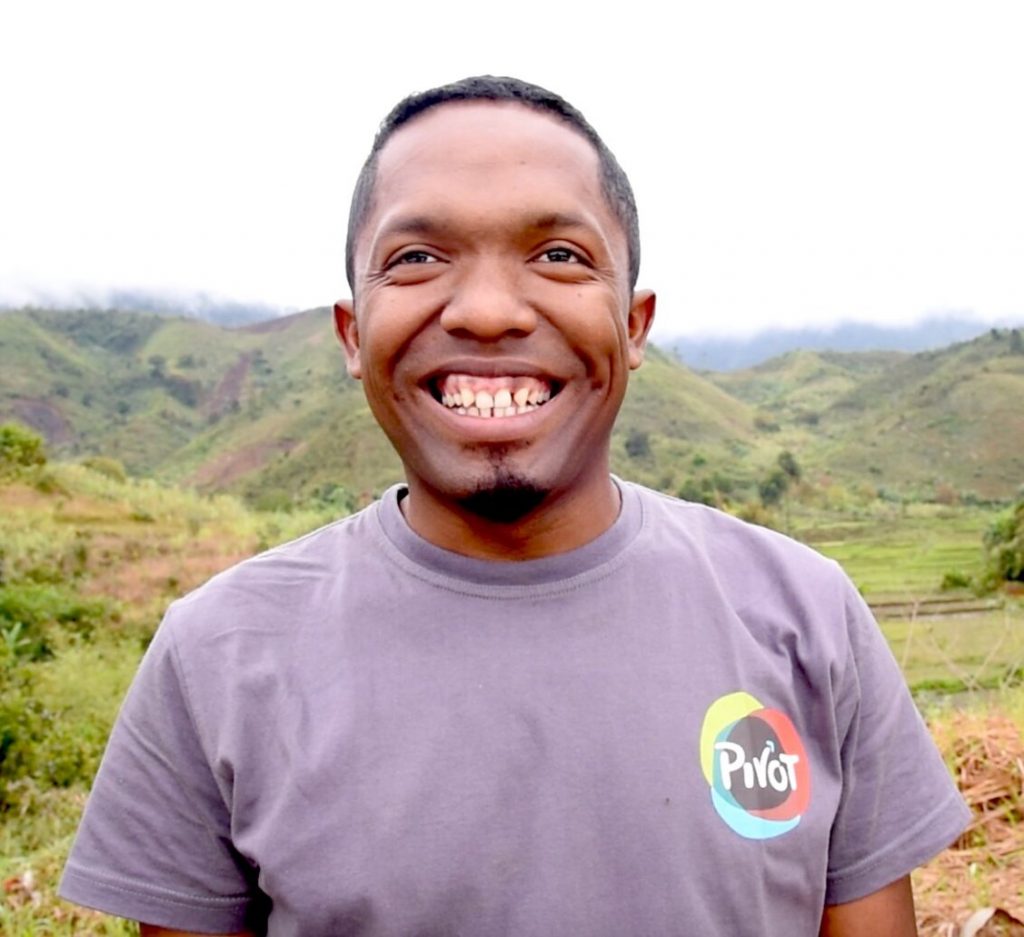 Dr. Fiainamirindra Ralaivavikoa, more commonly known to patients and colleagues as Dr. Rindra, is the kind of doctor most patients would hope to encounter. He is fueled by the satisfaction of helping people – especially those in need – and brings a seemingly unshakable optimism to his work. He has an uncanny ability to put people at ease with a well-practiced balance between a vibrant sense of humor and a serious dedication to providing high-quality care.
Dr. Fiainamirindra Ralaivavikoa, more commonly known to patients and colleagues as Dr. Rindra, is the kind of doctor most patients would hope to encounter. He is fueled by the satisfaction of helping people – especially those in need – and brings a seemingly unshakable optimism to his work. He has an uncanny ability to put people at ease with a well-practiced balance between a vibrant sense of humor and a serious dedication to providing high-quality care.
Dr. Rindra’s passion for humanitarian service was sparked while he was still in medical school, when he interned for an organization that dispatched mobile clinics to deliver primary care and essential medicines to youth surrounding Madagascar’s capital city of Antananarivo.
“All of that motivated me a lot; to see people [seeking care] to heal themselves, for me it’s like an extra payment even if we didn’t receive a salary,” he explains. “This was really my first motivation to work at organizations that do charitable humanitarian work.”
After receiving his medical degree, Dr. Rindra landed a position managing a project focused on bringing healthcare to remote communities in the central-western region of the country. Each day, he would venture up to 25 kilometers to one of several villages to provide free consultations and medicines. The lack of health infrastructure in the region meant that these mass consultation days would often take place in churches, or sometimes even out of his car.
Seeking professional growth but finding limited opportunities to work in humanitarian medicine in Madagascar, Dr. Rindra later took a position as an attending physician for a private medical company. But after six months, recognizing that it was simply not fulfilling in the same way that his prior experiences had been, he was thrilled to come across Pivot’s recruitment notice for a hospital clinician and to be offered a chance to put his skills to use with a mission-driven organization.
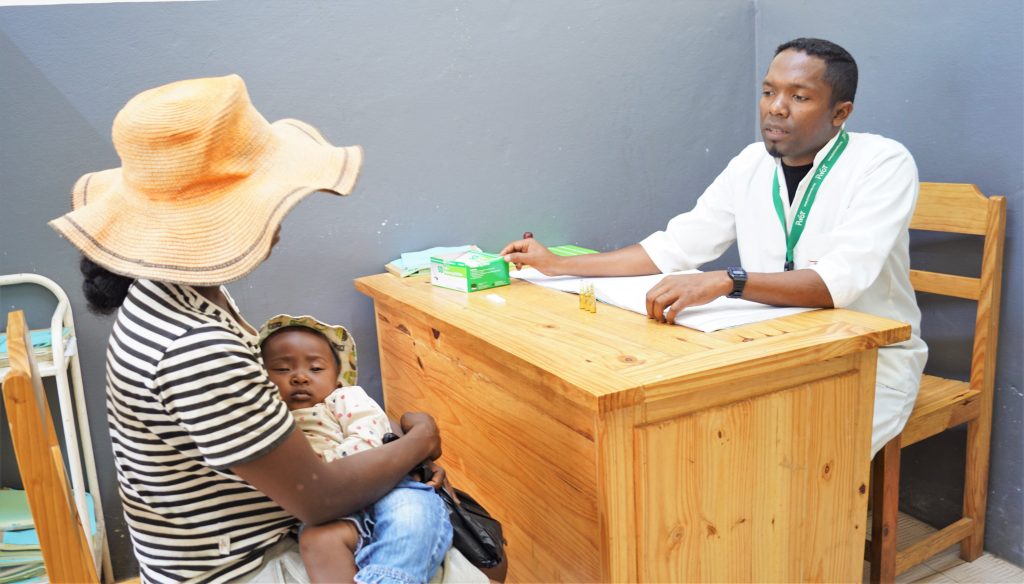
From 2017-2020, Dr. Rindra brought his experience and enthusiasm to Pivot’s clinical team and patient population as an attending physician at Ifanadiana District Hospital. When the opportunity to grow into a leadership role arose in 2020, he submitted his candidacy to manage Pivot’s primary care program. The transition started off with a bang with the onset of the COVID-19 pandemic, which required a scramble (all too familiar to clinicians around the world) to ensure safety protocols were in place to protect patients and providers throughout the district and begin to respond to the pandemic.
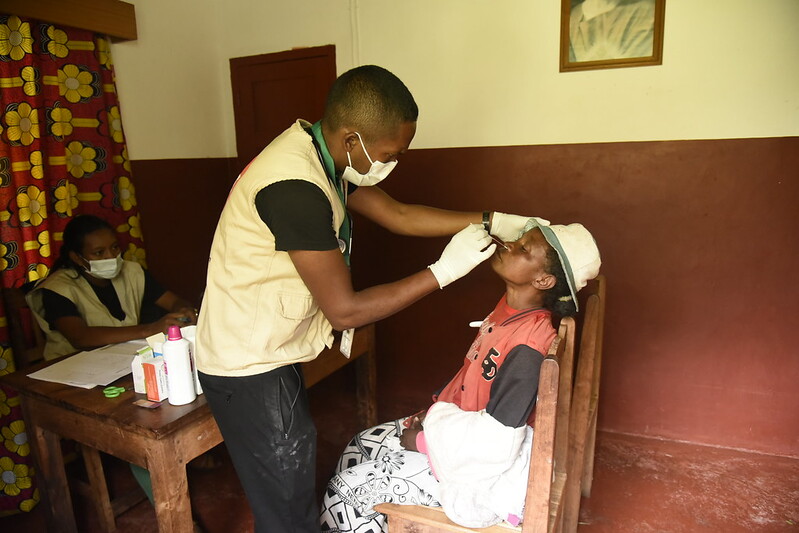
Dr. Rindra has been effectively driving the program forward ever since. In this leadership role, he oversees activities across the district’s 21 health centers, each of which serves as the primary care facility for an average of 10,000 children and adults. He names this as one of the steepest learning curves in the transition to this role, explaining that “being in charge of 21 dispersed facilities […] takes a lot of coordination to overcome the geography- and communication-related barriers,” which in turn fosters a greater empathy for the daily challenges faced by our patient population.
In navigating his multifaceted role, Dr. Rindra sees himself as the catalyst for responding to issues that arise, launching new initiatives, and deepening Pivot’s commitment to ensuring a high quality of care at the health center level. Through it all, he is also an innovator who enjoys creative problem-solving and bringing new ideas to the table.
“Dr. Rindra is an intelligent, logical, quick, and reasonable manager, he does things his own way and is always original,” says his supervisor Dr. Mbola Raza-Fanomezanjanahary, Pivot’s Deputy Director of Primary Care. Dr. Rindra has played a key role in the development and implementation of primary care-level activities ranging from noncommunicable disease management, to strengthening referral systems that support patients’ continuum of care, to maximizing human resource efficiencies and capacities.
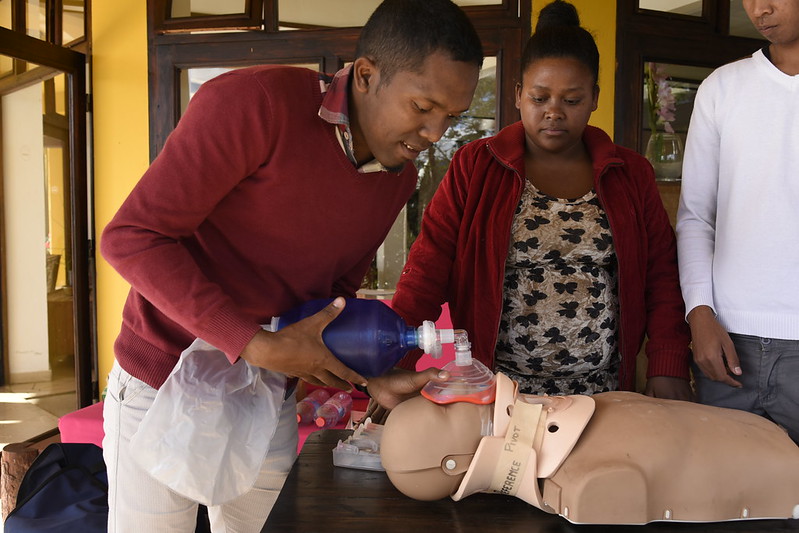
Through the rollercoaster of successes and failures that are inevitable in any health system strengthening journey, his optimism is especially valuable. “Admittedly, projects don’t always succeed,” he explains, “but it doesn’t frustrate me too much; I enjoy the chance to share and test my ideas [for improving] the activities entrusted to me.”
When Dr. Rindra first joined the Pivot team, he was pleasantly surprised to discover just how far and wide Pivot was able to go in terms of carrying out our mission, both in terms of population coverage as well as the breadth and depth of our programs. He says that adapting to the inherently slower pace of working in partnership with the government was a challenge at first, but ultimately more rewarding in terms of bringing about sustainable change for Madagascar. Dr. Rindra emphasizes the gratification that comes with being part of an organization that “works hard” and “runs fast” to meet patients’ needs, and that is among those leading the charge to advance universal health coverage in the country.
After five years at Pivot, his colleagues know him to be someone who “is always happy, smiles often, and jokes a lot,” while never falling short when it comes to professionalism. “I never see him even for one second not focused on work,” says colleague Victor Razanajatovo. “He is always present and so pleasant to work with […], his personality makes him irreplaceable within the large Pivot family.”
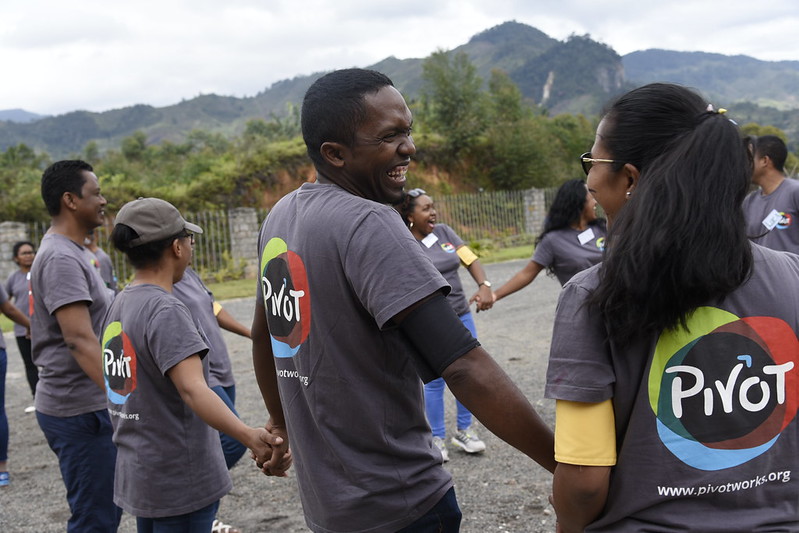
Dr. Rindra half-jokingly attributes his nature to growing up as the youngest of five children, where he had to work extra hard to find ways to do his chores quickly and with positivity in order to keep up with the rest of the family. He brings this same joy and dedication to his personal life today. In his spare time, he loves spending time with his wife and children, enjoying Ranomafana’s unique natural environment, and coming up with ways to make people laugh, which does not go unnoticed by his colleagues. Dr. Florent Razafimamonjy, who manages Pivot’s Child & Adolescent Health programming, says “Humor has never harmed anyone. [In fact,] laughter is excellent for your health! In relation to his work, he is extremely professional but also conducts himself with good humor.”
“It makes me very proud to be able to offer access to better healthcare to Malagasy people through my work at Pivot,” Dr. Rindra states. And, likewise, Pivot is proud to have such a warm, committed, and compassionate physician defining the ethos of organizational leadership through his values-driven actions each and every day.
